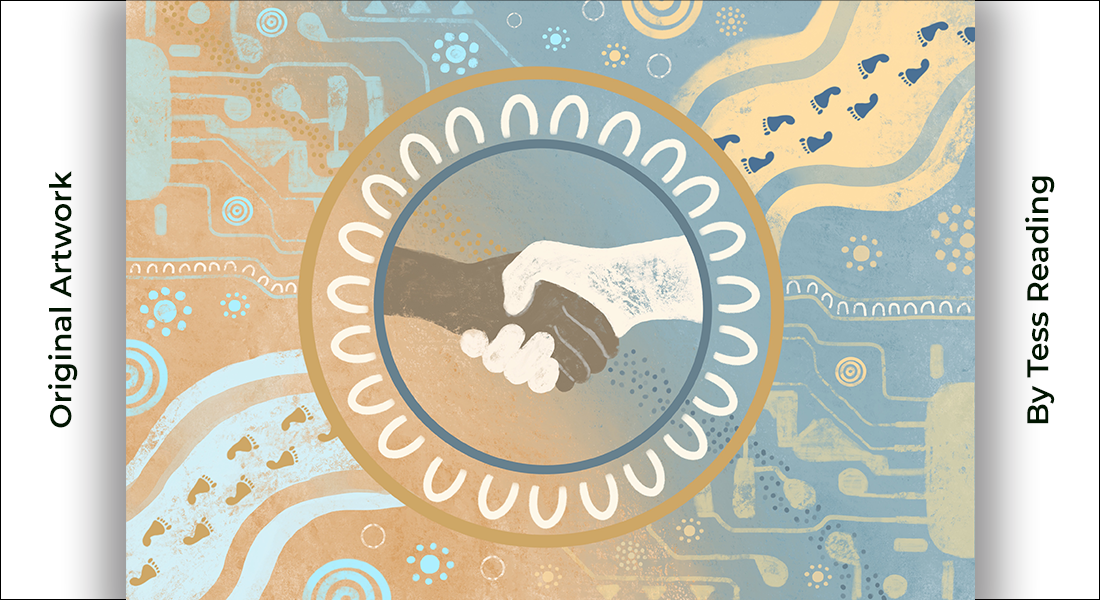Indigenous Data Sovereignty: Challenges And Strategies For Cultural Protection

Table of Contents
Understanding the Concept of Indigenous Data Sovereignty
Indigenous Data Sovereignty is the right of Indigenous peoples to govern the collection, ownership, control, access, and use of data related to themselves, their cultures, and their lands. It's a fundamental principle rooted in self-determination, recognizing the inherent rights of Indigenous communities to control their own narratives and futures. This concept extends beyond simple data ownership; it encompasses the ethical and responsible management of information that is integral to Indigenous identity and cultural survival.
- Control: Indigenous communities determine how data is collected, used, and shared.
- Access: Data related to Indigenous peoples is accessible primarily to them, with controlled access granted to others.
- Ownership: Indigenous communities retain ownership of their data and the knowledge embedded within it.
- Responsibility: Indigenous communities are responsible for managing their data in a way that respects cultural protocols and ethical guidelines.
This control is intrinsically linked to self-determination, enabling Indigenous communities to counter historical injustices and reclaim agency over their representation and future. Ethical data practices are paramount, ensuring data is used respectfully and does not perpetuate harmful stereotypes or misrepresentations of Indigenous knowledge systems and cultural heritage.
Challenges to Indigenous Data Sovereignty
Indigenous communities face numerous obstacles in exercising their right to data sovereignty. These challenges stem from historical injustices, technological limitations, and inadequate legal frameworks.
Colonial Legacies and Power Imbalances
Colonialism has left a deep legacy of power imbalances, significantly hindering Indigenous control over data. This manifests in several ways:
- Unauthorized data collection: Researchers and institutions often collect data from Indigenous communities without free, prior, and informed consent.
- Misrepresentation of cultural information: Data is often misinterpreted or used out of context, leading to the distortion of Indigenous knowledge and cultural practices.
- Lack of informed consent: Consent processes frequently lack cultural sensitivity and fail to adequately inform Indigenous communities about the potential risks and benefits of data sharing.
These actions constitute a form of data exploitation, perpetuating historical injustices and undermining Indigenous self-determination.
Technological Limitations and the Digital Divide
The digital divide significantly impacts Indigenous communities' ability to participate in data governance.
- Lack of access to technology: Many Indigenous communities lack reliable internet access and the necessary technology for data management.
- Limited digital literacy: A lack of digital skills hinders Indigenous participation in data discussions and decision-making processes.
This unequal access further marginalizes Indigenous communities and prevents them from effectively asserting their data sovereignty rights.
Legal and Regulatory Frameworks
Existing legal frameworks often fall short in protecting Indigenous data rights.
- Lack of specific legislation: Many jurisdictions lack specific legislation addressing Indigenous data sovereignty.
- Challenges in enforcement: Even when data protection laws exist, enforcing them within the context of Indigenous communities can be difficult.
Policy recommendations and the development of new legislation specifically designed to protect Indigenous data are crucial.
Strategies for Strengthening Indigenous Data Sovereignty
Addressing these challenges requires a multi-pronged approach that centers Indigenous leadership and prioritizes community needs.
Community-Led Data Governance
Indigenous communities must lead the development and implementation of their own data governance frameworks.
- Community-based data protocols: These protocols define how data is collected, managed, and shared, aligning with Indigenous values and cultural protocols.
- Indigenous-led data management systems: Creating Indigenous-led systems ensures that data remains within community control.
Community-based participatory research approaches are key to successful implementation.
Capacity Building and Digital Literacy
Investing in targeted programs to improve access to technology and digital skills is essential.
- Digital literacy training: Training programs focused on data management and analysis are critical.
- Technology grants: Providing Indigenous communities with access to reliable technology is necessary for participation.
These capacity building programs empower Indigenous communities to manage their data effectively.
Advocacy and Policy Reform
Advocacy groups and Indigenous organizations play a crucial role in pushing for legal reforms.
- Advocating for new legislation: Advocating for the creation of specific laws protecting Indigenous data is vital.
- Influencing policy decisions: Engaging in policy discussions at all levels of government is crucial.
International cooperation and sharing best practices are also valuable components of advocacy efforts.
Collaboration and Partnerships
Building collaborations between Indigenous communities, researchers, and technology developers is vital.
- Ethical data sharing agreements: Agreements that ensure equitable benefit sharing and respect for cultural protocols.
- Collaborative research projects: Projects designed and led by Indigenous communities, ensuring that research serves their needs and priorities.
These collaborations are key to ensuring that research is conducted ethically and contributes to Indigenous self-determination.
Securing Indigenous Data Sovereignty for a Just Digital Future
Indigenous Data Sovereignty is not merely a technical issue; it's a fundamental human right essential for cultural preservation and self-determination. The challenges highlighted underscore the urgent need for transformative change in data governance practices. By prioritizing community-led initiatives, investing in capacity building, advocating for policy reform, and fostering collaborative partnerships, we can move towards a digital future where Indigenous knowledge and cultural heritage are protected and celebrated. Learn more about Indigenous Data Sovereignty, support Indigenous-led data initiatives, and advocate for Indigenous data rights to ensure a just and equitable digital world for all.

Featured Posts
-
 Liverpools Transfer Plans Competition For Lookman Intensifies
May 13, 2025
Liverpools Transfer Plans Competition For Lookman Intensifies
May 13, 2025 -
 Shtutgart Kostyuk Boykotiruet Match Protiv Predstavitelnitsy Rossii
May 13, 2025
Shtutgart Kostyuk Boykotiruet Match Protiv Predstavitelnitsy Rossii
May 13, 2025 -
 Forgatasi Botranyok 5 1 Sztar Akik Utaltak A Partnerueket
May 13, 2025
Forgatasi Botranyok 5 1 Sztar Akik Utaltak A Partnerueket
May 13, 2025 -
 Pegula Falls To Sabalenka In Miami Open Final
May 13, 2025
Pegula Falls To Sabalenka In Miami Open Final
May 13, 2025 -
 The Kidnapping Of Edan Alexander A Call For His Safe Return
May 13, 2025
The Kidnapping Of Edan Alexander A Call For His Safe Return
May 13, 2025
